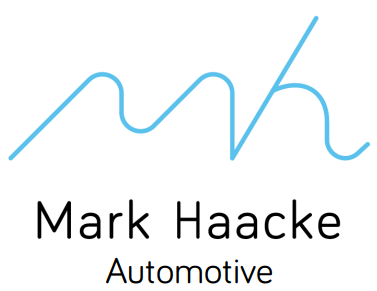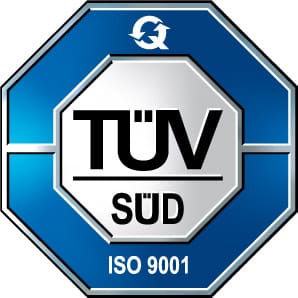RGA / APQP – Maturity Level Assurance & Advanced Product Quality Planning
Description
Increasing competitive pressure and growing customer requirements in the automotive and supplier industry mean that a reliable and structured approach to planning new products and processes has become indispensable. RGA (maturity level assurance) and APQP (advanced product quality planning) are two established control methods that ensure the successful implementation of projects and a reliable start of production (SOP). Both methods can be used not only in the automotive industry, but also across all sectors.
Objectives and benefits of RGA / APQP
- Systematic planning: Both RGA (VDA) and APQP (AIAG) aim to clearly define and transparently control all project-relevant factors from the outset.
- Risk minimization: Early detection of potential sources of error enables proactive countermeasures to be taken, which leads to lower costs in the long term.
- Meeting customer requirements: Whether OEM-specific expectations (e.g. from Ford, GM) or cross-industry quality requirements – RGA and APQP provide a clear guideline for meeting all important requirements.
- Efficient processes: The structured approach optimizes both internal and external processes, which ensures a high level of product maturity right from the start of series production.
Background: VDA-RGA & AIAG-APQP
- VDA-RGA (maturity level assurance)
- Developed by the German Association of the Automotive Industry (VDA) as a guideline for project management in the automotive environment.
- Focus on achieving defined maturity levels across various project phases.
- Enables a clear assessment of the project status (e.g. in the form of traffic light reports, maturity models or milestone reports).
- AIAG-APQP (Advanced Product Quality Planning)
- Internationally recognized procedure, published by the AIAG (Automotive Industry Action Group).
- Supports the structured planning and implementation of new products and processes – from the concept phase to the start of series production.
- The recently updated APQP Volume (3rd Edition) and the new Control Plan (CP) Manual (1st Edition) respond to increased customer demands and provide a more detailed, effective implementation.
Connection with increased customer requirements
- Global competition: OEMs and suppliers are facing increasingly complex technical requirements combined with significantly shorter development cycles.
- Quality and risk management: Customers expect a high level of process reliability and product quality. Tools such as APQP & RGA ensure that these expectations are transparently incorporated into project plans.
- Avoiding follow-up costs: Errors in late project phases can be extremely expensive. Targeted project and quality planning significantly reduces the risk of costly rework or recalls.
Core content of the training
- Fundamentals of RGA (VDA) and APQP (AIAG)
- History and development
- Objectives, methods and areas of application
- Differences and similarities between the two concepts
- Updated APQP band and Control Plan (CP)
- Presentation of the new APQP 3rd Edition and Control Plan 1st Edition
- Enhancements compared to previous versions, e.g. to meet increased customer requirements
- Practical examples: How do the innovations affect current and future projects?
- Project phases and milestone analysis
- Concept phase, development phase, pre-series and series start-up
- Definition of quality targets and key performance indicators (KPI)
- Risk assessment and decision points in the course of the project
- Methodical procedures
- Project organization: roles and responsibilities (e.g. APQP manager, QMB, supplier manager)
- Tools and documentation requirements (e.g. project plan, APQP checklists, RGA maturity models)
- Working with interdisciplinary teams and supplier integration
- Maturity level assurance (RGA) in detail
- Structured design of the maturity models according to VDA
- Evaluation mechanisms (traffic light system, metrics)
- Practical examples for efficient project reporting
- Advantages and benefits for the company
- Savings potential and quality improvement
- Improving project communication and transparency
- Higher customer satisfaction through scheduled SOP
- Exchange of experience and case studies
- Practical experience reports by the speaker Thomas Fricke
- Typical stumbling blocks in development projects and how to avoid them
- Discussion of best practices and specific recommendations for action
- Introduction of new products and processes
- Methods for the efficient rollout of product and process changes
- Strategic planning, change management and supplier communication
- Continuous improvement concepts and lessons learned
Your speaker: Dipl.-Ing. (FH) / Dipl.-Betriebswirt (VWA) Thomas Fricke
Thomas Fricke has decades of experience in the automotive industry and has worked in various areas (planning, purchasing, quality, supplier management, operations). Since 2016, he has been working as a freelance interim manager and consultant in roles such as APQP manager, QM senior manager (QMB), supplier manager, auditor and trainer. Since 2021, he has been responsible for topics such as QMS, CSR, CoP & PSCR as “Global Manager”. This broad expertise enables him to convey an in-depth understanding of the entire product development process and demonstrate practical solutions.
Target group
- Specialists and managers from the areas of quality management, project management, development and production
- Responsible for supplier development and Supplier Quality Assurance (SQA)
- Teams that plan and introduce new products and processes
- Anyone who wants to gain a better understanding of effective product and process ramp-ups
Benefits for your company
- Better project planning and implementation: structured and low-risk introduction phases for new products or processes
- Cost savings: Avoidance of rework and returns through early identification of error sources
- More satisfied customers: Robust process and quality planning ensures that customer requirements are met reliably and sustainably
- Greater competitiveness: Professional maturity level assurance strengthens the image as a reliable partner in the supply chain
Organizational notes
- Duration: 2 days (depending on intensity and scope)
- Methodology: Combination of specialist presentations, group work, practical examples and interactive exchange of experience
- Documents: Scripts, checklists and overview tables for direct use in your projects
Would you like to introduce your products and processes to the market safely, efficiently and cost-consciously?
This training course provides you with the methodological toolbox for RGA and APQP, adapted to the latest standards and increased customer requirements. Benefit from the speaker’s many years of experience and practical reports and take the opportunity to contribute your own questions. Secure your place now and successfully shape the future of your projects!







Reviews
There are no reviews yet.